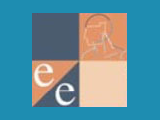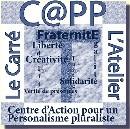Business Ethics Center
Corvinus University of Budapest, Hungary

The Business Ethics Center of the Corvinus University of Budapest promotes ideas and techniques of business ethics in higher education, academic research, and business life. The functioning of the Center is based on the conviction that ethics is a relevant aspect at all levels of economic activities, from individual and organizational to societal and global. The Business Ethics Center has an active interest not only in business ethics but also in environmental ethics, information ethics, public service ethics, and international ethics.
Center for Ecological Economics and Ethics
Bodo Graduate School of Business, University of Nordland, Norway

The Centre for Ecological Economics and Ethics focuses its work on issues related to the interdependence between economics, nature and culture. The Centre can be defined as follows: (i) it is a multidisciplinary communicative arena for education, research and professional training, (ii) develops courses and educational programmes in the fields of ecological economics and ethics at Bodø Graduate School of Business, and (iii) researches in the field of ecological economics and ethics.
Center for Economics and Ethics
Catholic University of Leuven, Belgium

With the support of a group of Flemish entrepreneurs (vzw Werkgroep Economie en Ethiek), the Center for Economics and Ethics was officially founded in 1987 as an Interdisciplinary Research Center of the KU Leuven’s Faculty of Economics and Business. The Center is intended to organize and stimulate scientific research and social debate on ethical aspects of economic activity, to foster interdisciplinary contacts and to investigate the links between Christian ethics, welfare economics and business ethics. The Center has been actively involved in the start-up of the EBEN Network (European Business Ethics Network) and, for several years, has chaired and coordinated its activities. The Center has also been the birthplace of SPES in 1999-2000.
Center of Studies for Economy and Culture
Catholic University of Argentina, Buenos Aires

El Centro de Estudios en Economía y Cultura (CEEC) tiene como objetivo estudiar las implicancias culturalesy éticas de los problemas económicos de nuestro tiempo tanto a nivel teórico como a nivel práctico.Las principales areas de investigación son filosofía de la economía, economía civil, historia de las ideas políticas y económicas, etica y empresa, pensamiento social cristiano y economía y procesos de modernización.
Centre d’Action pour un Personnalisme Pluraliste
Louvain la neuve, Belgium

Le C@PP est une association sans but lucratif, ayant pour but d’approfondir l’humanisme fondé sur les philosophies personnalistes et d’en développer les applications dans la société, sur le plan culturel, social, économique et politique.
Centre for Ethics
University of Antwerp

The Centre for Ethics, University of Antwerp focuses on four key research areas: history of ethics (Enlightenment moral philosophy, theory of secularization, hermeneutical ethics, normative ethics, virtue ethics), liberal political philosophy (state neutrality, religion in the public sphere, church-state regimes, religious and citizenship education, multiculturalism), moral psychology (moral emotions, conscience, the status of virtue ethics) and applied ethics (business ethics, fiscal ethics, bio-ethics).
European Bahá’í Business Forum (EBBF)
Paris, France

ebbf is a global learning community, accompanying mindful individuals passionate about contributing to a prosperous, sustainable & just civilization through their daily work.The ebbf community is made up of women and men active in over 50 countries. ebbf and its members positively influence 10.000+ people around the world through our daily work, every year. Our members are a great example of unity in diversity: united by the same purpose, making change happen in very diverse sectors, positions and geographical locations.
Faith and Work Initiative
Princeton University, USA

The purpose of the Princeton Faith & Work Initiative is to generate intellectual frameworks and practical resources for the issues and opportunities surrounding faith and work. The Initiative investigates the ways in which the resources of various religious traditions and spiritual identities shape and inform engagement with diverse workplace issues as ethics, values, vocation, meaning, purpose, and how people live out their faith in an increasingly pluralistic world. The Initiative explores pressing marketplace topics, including ethics, global competition and its ramifications, wealth creation and poverty, diversity and inclusion, conflicting stakeholder interests, and social responsibility.
Globalization for the Common Good Initiative (GCGI)
Coventry, UK

Founded in 2002 at an international conference in Oxford, the GCGI is the UK’s leading progressive think tank, producing cutting-edge research and innovative policy ideas for a just, democratic and sustainable world. For the last 10 years, GCGI has helped shape the progressive thinking that is now the political centre ground. Independent and radical, we are committed to combating inequality, empowering citizens, promoting social responsibility, creating a sustainable economy and revitalising democracy.
SPES Forum
Leuven, Belgium

The SPES Forum vzw, is an autonomous non-profit organization under Belgian law (2004). Its origin goes back to 1999-2000 where it started as an informal ‘personalist studygroup’ in the Center for Economics and Ethics (Catholic University of Leuven, Belgium) in cooperation with the Center for Ethics (University of Antwerp, Belgium). The SPES Forum vzw aims at disclosing spirituality as a leverage for personal growth, social welfare and business ethics. To realize its mission on an international level, it hosts the European SPES forum (now European SPES Institute).